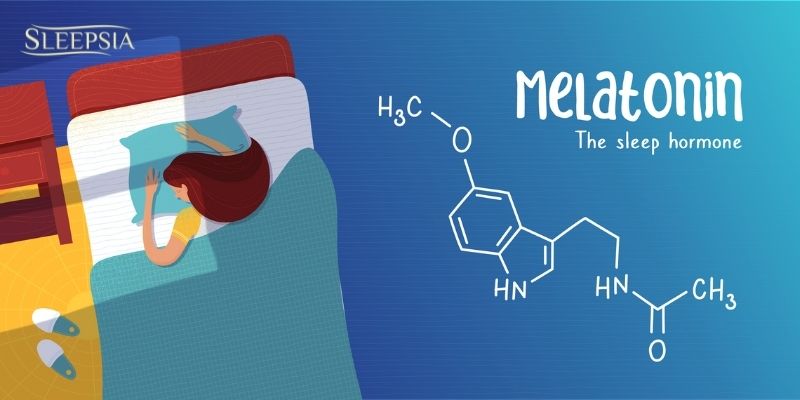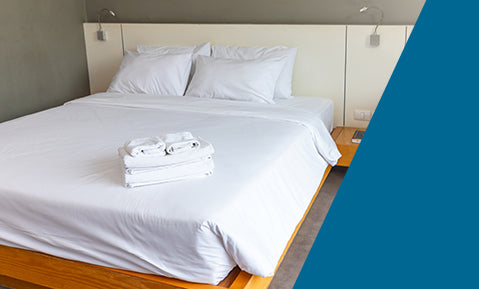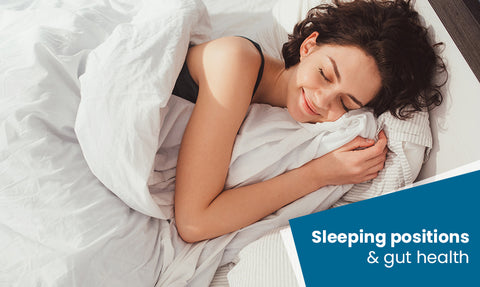
Referred to as the sleep hormone, melatonin released by the pineal gland induces sleep and is the central pillar of the sleep-wake cycle. While It is created naturally by the body, it is also available as a sleep supplement.
As one of the most commonly used supplements in the United States, melatonin has proved its efficacy time and again.
While some studies have found that melatonin can improve sleep in certain conditions, it still isn’t recommended for everyone. But its usefulness in resetting the circadian rhythm and creating a sleep schedule cannot be overemphasized.
Melatonin, the Hormone!
After being released by the pineal gland located in the brain, melatonin goes into the bloodstream and informs cells in our body that it's time to sleep.
Luis F. Buenaver, Ph.D, C.B.S.M, a sleep expert at Johns Hopkins, explains, “Your body produces melatonin naturally. It doesn’t make you sleep, but as melatonin levels rise in the evening it puts you into a state of quiet wakefulness that helps promote sleep”
According to him, it is important to work with melatonin and create the ideal sleep schedule and environment.
Melatonin for Sleep Disorders
Because of its ability to reset the circadian rhythm, melatonin may help with several sleep disorders.
In fact, it may help improve the duration of your sleep.
Here are a few sleep disorders that you should know about:
Insomnia

Insomnia leads to an inability to fall or stay asleep. It may be caused by stress or hormonal imbalances.
- Irritability
- Anxiety and depression
- Problems with focus
- Impaired performance
- Weight gain
Up to 50 percent of people in the United States experience insomnia at least once in their life.
Types of Insomnia include:
- Chronic: when symptoms continue for at least 1 month
- Intermittent: when symptoms occur periodically
- Transient: when symptoms last for only a few nights
According to a 2014 study, melatonin may improve sleep in people with insomnia.
Non 24-hour sleep wake disorder
Most adults can maintain a sleep-wake cycle as their circadian rhythm works normally. The bodily processes are reset every 24 hours, and the cycle continues.
But Non-24 hour sleep wake disorder stops the internal clock from resetting every 24 hours, resulting in problems with sleep-onset and waking up.
However, this disorder generally affects people with dementia or blindness.
People with this condition can rely on melatonin to reset their circadian rhythm and follow a regular sleep schedule.
Sleep Apnea
Sleep apnea, generally defined by excessive snoring, can deteriorate your quality of sleep and lead to drowsiness and lethargy during the day.
Types of sleep apnea:
- Obstructive sleep apnea: when breathing is obstructed because of a blockage in the upper airway.
- Central sleep apnea: when the brain fails to signal the muscles to breathe.
Both the conditions can become life threatening if left untreated. So if you think you suffer from sleep apnea, consult a doctor immediately.
One study found that in people suffering from untreated obstructive sleep apnea, one week of taking 10mg of melatonin improves sleep consolidation.
Restless leg syndrome (RLS)
Affecting 7-10% of the US population, RLS leads to itching, pulsating, throbbing, and other painful sensation in the legs.
Generally appearing when the person is resting, these symptoms cause powerful urges to move the leg. Because of a need to move legs constantly, people suffering from RLS generally find it difficult to fall asleep without medical intervention.
People with RLS shouldn’t take melatonin as it decreases the amount of dopamine in the brain, exacerbating the symptoms of RLS.

Uses of melatonin
Apart from sleep disorders, melatonin supplements may help with a host of other physical and mental health conditions.
Headaches
Melatonin can alleviate the symptoms of some headaches: migraines and cluster headaches.
Migraines often include recurring headaches along with other symptoms. The symptoms usually last for several days.
Cluster headaches occur several times in a single day. Often starting suddenly, they disappear after a limited period of time but can be very painful.
Cancer
Although inconclusive, some studies show promising signs of using melatonin alongside radiation therapy and chemotherapy in the treatment of cancer.
But before taking melatonin, you should consult with your doctor about its proven benefits and side effects.
Apart from this, melatonin may also be useful for patients of Alzheimer’s disease and tinnitus.
Melatonin dosage
You should start with a small amount of melatonin in the range of 0.2-5mg per day.
Generally, most people who consume melatonin take 1-5mg per day.
Since melatonin is naturally present, our body requires time to get used to the extra hormone ingested via the supplement. Once you get used to this amount, you can increase the amount to 10mg per day.
However, experts recommend that you don’t take more than 30mg of melatonin per day, as it may lead to serious toxicity.
Melatonin side effects
Melatonin is considered safe for consumption by most people. Even long term consumption rarely causes any side effects in most people.
Side effects of melatonin may include:
- Headache
- Dizziness
- Irritation
- Depression
- Stomach cramps
If you notice any severe symptoms after taking melatonin, then get in touch with a certified medical professional immediately.
Common questions about melatonin
Is melatonin safe?
For short term treatment of sleep issues and disorder, melatonin appears safe. However, long-term use of melatonin has still not been studied.
Also, don’t take melatonin in the following conditions:
- Depression
- Seizure disorders
- Pregnancy
- Breastfeeding
- Autoimmune disorders
Note: Consult your doctor before taking melatonin supplements, especially if you suffer from any medical conditions or allergies.
Is melatonin overdose possible?
Yes, you can OD on melatonin. But you’ll have to take a very high amount.
Experts generally agree that you shouldn’t take anything more than 30mg per day. And even then, you should start off with a small amount of melatonin in the range of 0.2-5mg.
Remember that it isn’t about taking a lot of melatonin but about using this supplement to get into a regular sleep schedule.
When to take melatonin?
For jet lag, you can take melatonin 2 hours before going to sleep.
Otherwise, simply take it 30 minutes to an hour before heading to bed.
How long to take melatonin supplements?
Dr. Buenaver suggests, “If melatonin for sleep isn’t helping after a week or two, stop using it. And if your sleep problems continue, talk with your health care provider. If melatonin does seem to help, it’s safe for most people to take nightly for one to two months.”
After that, you can stop melatonin and check the quality of your sleep. And make sure to follow proper sleep hygiene and schedule to optimize your sleep.
Can kids take melatonin?
Many parents give melatonin to their children, as kids generally don’t get enough sleep. Poor sleep, in turn, affects the learning ability and behaviour of the child.
If you think that your kid finds it hard to fall asleep, then talk to a pediatrician about melatonin for kids.
Which melatonin supplement should I select?
Melatonin supplements are available in many forms. You can get topical melatonin or even melatonin vapes.
However, pills are better equipped to deliver the desired amount of melatonin into your bloodstream.
Can I take melatonin with alcohol?
Alcohol and melatonin don’t mix well. It’s generally better to not consume alcohol at least 2-3 hours before consuming melatonin supplements.
Is there any melatonin for dogs?
Melatonin may be used for dogs to treat:
- Anxiety
- Hyperactivity
- Restlessness
Although the FDA hasn’t approved melatonin for dogs, you can still purchase them at stores. However, you should consult a veterinarian before feeding your dog melatonin supplements.
Conclusion
Because of its efficacy, melatonin has become one of the most used supplements in the United States. If you want to be productive and perform at the height of your skills, then getting good sleep is important. Talk to your doctor if melatonin supplements are right for you.












